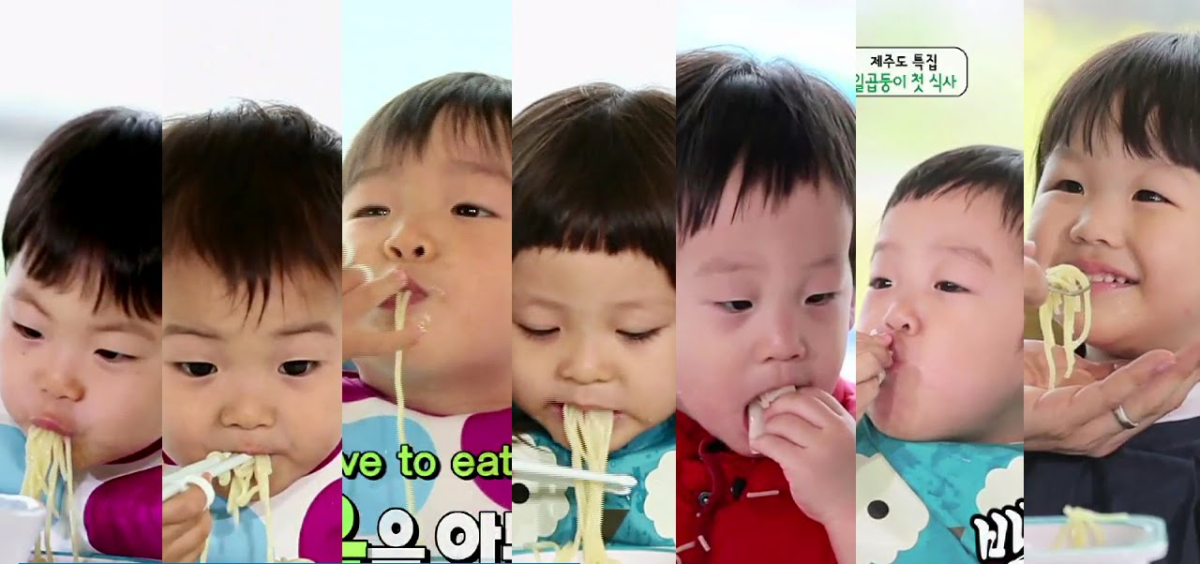Good Parenting: Best Practices
Good parenting: Doing our best
I always hear people talking about good parenting and all the things good parents are supposed to do and sometimes I worry that maybe I am a bad parent. For the most part I do what my parents did with me. I see other people's kids and I know I could be doing worse as a parent but I also wonder if maybe I could be doing better.
Working with families I have had a lot of parents convey these same thoughts to me. They wonder if it is possible to maybe improve their own parenting approach in one way or another. The following list of good parenting practices certainly can't cover all of the approaches and skills needed for good parenting. They are meant more to be a helpful reminder or suggestion of some of the things that seem to work best for raising healthy happy kids while allowing us to equally enjoy and appreciate the process of parenting. Parenting advice can never be written in stone but following tried and tested approaches is often the best practice.

Good parenting practice #1
Love. This may sound straight forward enough but many parents don’t always show their love as much as they could. You can’t love a child too much. It's just not possible. Sure children can be overindulged and not disciplined properly or parents can be smothering and overprotective; but there is no cut off point for how much love we can give kids. Kids need to know they belong and that even though there are sometimes conflicts, at the end of the day their parents love them. How we show love may vary from one parent to another but the main thing is that our kids feel they are loved. At the very least a child need to hear on a daily basis they are loved and should be told so before they go to sleep.
Good parenting practice #2
Empowerment. Kids need to know they can make a valuable contribution to their families. Parents can ask for help from their kids every so often so that they feel they are contributing and being helpful. Many parents are perfectionists so they don’t let their children help around the house. This really is a mistake. Kids need to be encouraged to pitch in. When child feels their contribution matters and it is appreciated they are less likely to engage in power struggles. Good parenting also means empowering kids by giving them limited choices and not controlling everything they do (i.e. do you want to wear this shirt or this one? Do you want to have this juice or this one)? Kids shouldn’t be overwhelmed by the options they but they do much better when they have choices and the ability to exert influence on their own lives.
Good parenting practice #3
Generosity. Good parenting happens when parents need to be generous with their time, their affection, and their attention. We can’t just save these things for when children are acting out or doing things we don’t like. Generosity also means being involved in different areas of our kids’ lives. Kids do better when they see their parents are involved in coaching their teams, watching their recitals, or helping out at school. These types of acts show children that their parents care about them and are committed to the things that matter to them.
Good parenting practice #4
Honesty. Parents don’t realize that their children sometimes hear their little white lies or that they know when their parent is fudging the truth. I have heard parents say things like don’t do that or a monster will get you. These types of statements eventually lead to parents having little credibility with their kids as their children realize they are lying. Also when parents make excuses for not being involved with some part of their lives kids often know. Kids need to trust their parents and when they catch us in a lie it can be what some psychologists call crazy making. Many parents don’t lie intentionally or they rationalize their lies by calling them little white lies. But to children they are still perceived as lies. Another part of honesty is following through. To kids broken promises are often considered a form of lying. Sometimes events that are beyond our control cause parents to have to change plans but good parenting means making arrangements to fix broken promises ASAP.
Good parenting practice #5
Independence. As children develop and grow they need to learn to be responsible for more and more of their own decisions. It can be very hard for parents to respect our child's need for autonomy and independence and sometimes we have to monitor their freedom closely. However, as children demand more and more freedom they also need to show they are equally responsible. Parents need to allow for some mistakes but they also need to protect their kids. Sure your child wants a cell phone but under what conditions, when it can be used, and for what purposes. Encouraging independence is great but good parents know their own kids and how much freedom and choice they can and can’t handle.
Good parenting practice #6
Responsibility.
As has been stated, we live in a world where freedom and independence is
greatly encouraged and most kids these days know what their rights are and what
they should be able to expect in terms of treatment from adults. Unfortunately
many kids don’t understand that freedom needs to be balanced with
a sense of responsibility. Parents can teach children responsibility by asking them to be
responsible for chores or even by allowing them to care for a pet. Some parents
encourage responsibility in their children by encouraging them to volunteer or
be involved in some way in their community. I know many children who have made
a difference by volunteering in their community. When we teach kids about responsibility they learn to take pride in being responsible people; people we can trust and feel good about as we encourage their independence.
Good parenting practices #7
Fun. Parents need to remember to have fun with their
children. Fun and enjoyment is an innate need for children. When we spend
time with them laughing and joking with them it helps to balance the time we spend
monitoring and encouraging good behavior. Parents always benefit from having a
good relationship with their children and laughter and humor certainly helps. Personally, I rarely let a child I work with get into my vehicle without saying
to them “no smiling or laughing while we are in the car”, which always leads to
a smile and often laughter. It helps them know that even though I am sometimes serious (like many
adults) they are still allowed to have fun. Good parenting means being able to recognize when we get too serious as parents and finding ways to lighten the mood.
Good parenting practices #8
High expectations. Good parenting means having the confidence in our kids to achieve more than they sometimes think they can. Kids often get discouraged by comparing themselves to others and giving up on new endeavors too easily. By being persistent and patient with our kids parents can sometimes set the bar a little higher than our kids think is possible. We need to remind our kids that the only comparison they need to make is the one in which they compare where they started to where they end up. We don’t want to discourage kids with unrealistic expectations but we do want to challenge them relatively high expectations. If a child makes a commitment to playing a sport or learning a a new skill parents need to encourage them to follow through and do their best to finish what they started. . When kids learn to keep their commitments they learn self discipline and they often exceed their own expectations. Encouraging what has been called stick-to-it-iveness can help children learn to be resilient and confident.
Good parenting practices #9
Shared Values. Good parenting means sharing our values and what we believe in our homes. This is one of those things we may need
to spend more time doing as parents. Good parents talk about values like
honesty, integrity, industriousness, modesty, consideration, self-discipline,
peacefulness (to name but a few) with their children. By doing so parents can encourage
the behaviour we want to see our children strive towards. When we tell children
the behaviour we want them to engage in, it is much easier to do so if they
understand the values that underlie the desired behaviours. Through family meeting and informal conversations kids can also be encouraged to contribute the values they think are important. This allows parents, children, and families as a whole to have a reference point that lets them know when they are on target and when they are getting off track.
Good parenting practices #10
Security. Children need to know their parents will do their best to keep them safe and secure. Good parenting means that parents think ahead and make plans that prevent unnecessary harm to their kids. This may mean having an emergency
safety plan in place in our home, making sure smoke and carbon monoxide detectors work, having a fire extinguisher
available, anchoring furniture that can fall on kids (like book cases), putting
covers on wall outlets, and securely storing harmful chemicals, cleaners, and
pharmaceuticals. These are just some of the things we can do in our home. However,
we can also keep our kids safe psychologically as well by not exposing them to harmful material in
movies, on TV, in video games, and on the internet. The material kids see should
be appropriate for the age of the children we have in our homes. Parents should be confident and steadfast in their desire to keep kids safe from content that isn't age appropriate.
Good parenting practices #11
Set rules in advance. Good parenting means being able to discipline our children well. When kids are aware in advance of what the consequences will be for unacceptable behavior, parents can react to problems more calmly and consistently. Their children should also be less likely to get upset when they do receive consequences, although this isn’t always the case. The goal of parents should be to help children learn from their mistakes. This means explaining which behaviors are not OK and what will happen when the child crosses the line. Good parents know we also need to balance this by encouraging and even rewarding the behaviors we do want.
Good parenting practices #12
Follow through. Good parenting means being firm and consistent with consequences. This is the other side of the discipline equation and it means disciplining our kids with respect while still being able to follow through and enforce the limits we set. Quick and certain consequence are always easier to enforce and they tend to work much better than severe consequences. The goal of good parents isn’t to micro manage every little aspect of their kids lives but to respond consistently and effectively when children have trouble respecting the reasonable limits and boundaries that have been set for them.
Good parenting practice #13
Appreciation. Good parenting means letting our kids know we like them. How strange does this sound? If we already love them and we are involved in their lives doesn’t that mean we like them? Well, not always. Kids might not always be so sure so we also need to let them know that we respect and like the way they are at a real basic level. Good parenting means accepting who are children are and letting them know we are on their side. Sometimes it may not seem like it while we are setting limits but there are plenty of other times to just enjoy the company of our children. Kids are healthier when they know we like just hanging out with them and we like and respect those things about them that may be unique and quirky.
Good parenting practices #14
Mindfulness. Good parenting means finding ways to be present and just be in the moment with our kids. As parents we often get caught up in our worries, plans, and a variety of other thoughts and distractions that keep us from being present. However, kids are often just living in the moment and good parents will find a way to be there with them. We always hear about how quickly children grow up and this is a truth that cannot be avoided. As parents we really do needed to smell the roses and find ways to be present and aware so that we are really there for as much of our children’s childhood as we can be.
Good parenting practices #15
Flexibility. OK maybe this seems contradictory to the message of being firm and consistent but sometimes different approaches work better with different kids. Good parenting means continually assessing what is working and what might need a little tweaking. Some kids really crave structure and discipline while others need a little softer touch. As parents we can still set boundaries but we need to do so while maintaining some respect for the unique abilities and qualities of our children.
As parents we also have to be able to be able to make adjustments for extenuating circumstances and other unforseeable events that can throw a monkey wrench into our best laid plans. We need to avoid being so intractable that we end up alienating our kids and harming our relationship with them. A foolish consistency is the hobgoblin of small minds it has been said and this can certainly be true when it comes to parenting.








